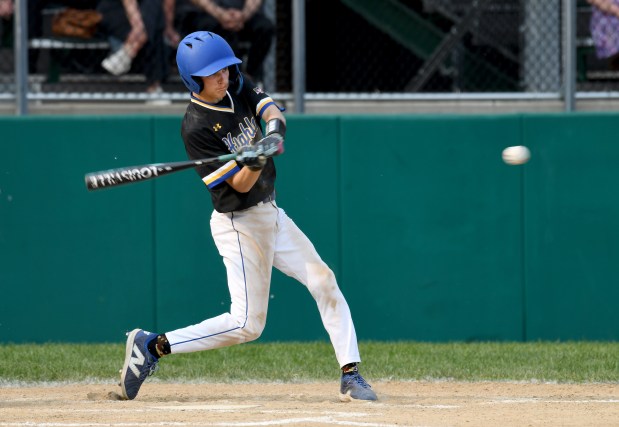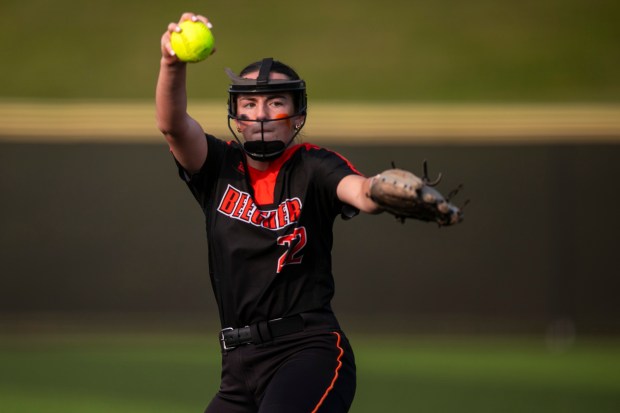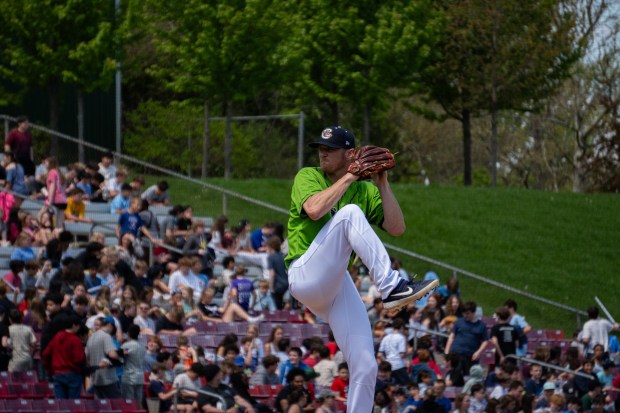The Chicago Police Department’s officer wellness program remains understaffed and unable to respond urgently to officers in need of mental health support, state officials on Tuesday told the chief judge of the U.S. District Court in Chicago.
Meanwhile, CPD’s data collection and analysis policies continue to hold back the department’s efforts to improve the Employee Assistance Program and reach compliance with a sweeping federal consent decree that is now in its sixth year.
More than a dozen officers have died by suicide since 2018.
“Clearly, there is no way to track or monitor how long it takes for an individual who reaches out to get help,” Abigail Durkin, an assistant Illinois attorney general, told Chief Judge Rebecca Pallmeyer during a status hearing in the Chicago consent decree case.
“There is no staffing analysis as to the appropriate number of clients per clinician or drug and alcohol counselor, which impacts the wellness agenda as a whole,” Durkin added. “Based on the limited information we do have, the data suggests that the caseloads are far too high and additional staffing is necessary to ensure that members are getting appropriate care.”
Durkin credited CPD for its efforts to combat the stigma associated with mental health services, but added that the limited evidence available — mostly anecdotal — suggests “the need for services exceeds the department’s capacity.” In the first three weeks of January, CPD’s 18 clinicians held 656 counseling sessions with officers or their family members. The department’s six drug and alcohol counselors had nearly 800 “contacts” in that time, Durkin added.
Dr. Robert Sobo, CPD’s director of professional counseling services, told Pallmeyer that the department will soon add four more clinicians. In 2023, the 18 on staff held more than 9,200 counseling sessions with officers. The department’s alcohol abuse program was utilized more than 18,000 times last year, Sobo added. However, when asked by Pallmeyer, Sobo could not say what percentage of CPD’s more than 12,000 employees have used EAP services.
Cassandra Deck-Brown, an associate monitor for officer wellness and support, said the department has failed to fully implement “the required suicide prevention initiative” and the implementation of a new clinical case management system has “stalled.”
At the hearing’s conclusion, Pallmeyer praised CPD officers’ willingness to seek help, and highlighted how all parties in the case were, effectively, in agreement on what needs to happen.
“I think what we all feel is that this is not a case of ‘less is more,’ this is ‘more is more,’” Pallmeyer said. “The consent decree was meant to alter abuses, but it recognizes that the majority of our officers are in this job because they are concerned with the health and safety of the city of Chicago, but that should include their own health and safety.”
Officers who have taken their own lives in recent years have ranged from ranking supervisors to beat cops. As far back as 2017, the U.S. Department of Justice found that Chicago police officers had a 60% higher suicide rate than other police departments across the country.
CPD suicides will sometimes occur in clusters. During summer 2022, three Chicago police officers died by suicide within a month. The following December, three more died by suicide in a seven-day span.
The Fraternal Order of Police Lodge 7, the union that represents rank-and-file officers, unveiled a memorial last year outside its West Loop headquarters for officers who’ve died by suicide.
At the accompanying ceremony, Larry Snelling, then-CPD’s chief of counterterrorism, called on officers to make a deliberate effort to offer help to colleagues.
“We have got to reach out to each other, we have got to take care of each other,” Snelling said. “It’s not a weakness to suffer. The weakness comes when we don’t reach out for that help. The weakness comes in others when you see someone in need and you’re not reaching out to help them.”
The CPD’s overall consent decree compliance has remained a challenge since the reforms were codified in January 2019, but the independent monitoring team, led by former federal prosecutor Maggie Hickey, expressed optimism in Snelling’s commitments to transparency early in his tenure as head of the Police Department.
There are three levels of compliance to the consent decree: Preliminary, secondary and full. Preliminary compliance signifies the department has developed a training curriculum; Secondary compliance means training has been implemented; and full compliance means that the policy is fully part of CPD’s day-to-day operations.
In the first half of 2023, the independent monitoring team found the department to be in preliminary compliance with 279 of the decree’s 552 monitorable paragraphs. Secondary compliance was found in 160 paragraphs, while the CPD was in full compliance with 33 paragraphs. No compliance was reached in 74 paragraphs, while six more remain under assessment, according to the monitoring team.
Under Snelling’s predecessor, David Brown, CPD’s Office of Constitutional Policing and Reform saw repeated turnover among leadership. Brown fired the office’s executive director, Robert Boik in August 2022 after Boik pushed back on a plan to reassign nearly four dozen officers from constitutional policing to the bureau of patrol. Boik’s successor, Tina Skahill, a veteran CPD supervisor, resigned after six months amid a claim of “retaliation.”
A steady presence in the office, though, has been Chief Angel Novalez.
Last year, Novalez opened the department’s massive new training facility on the West Side to reporters to give demonstrations of officer wellness classes, de-escalation tactics and other features required by the consent decree.
“We don’t want to do this fast,” Novalez, who was a finalist for the superintendent job that ultimately went to Snelling, said at the time. “The public deserves better. We want to do it right.”





